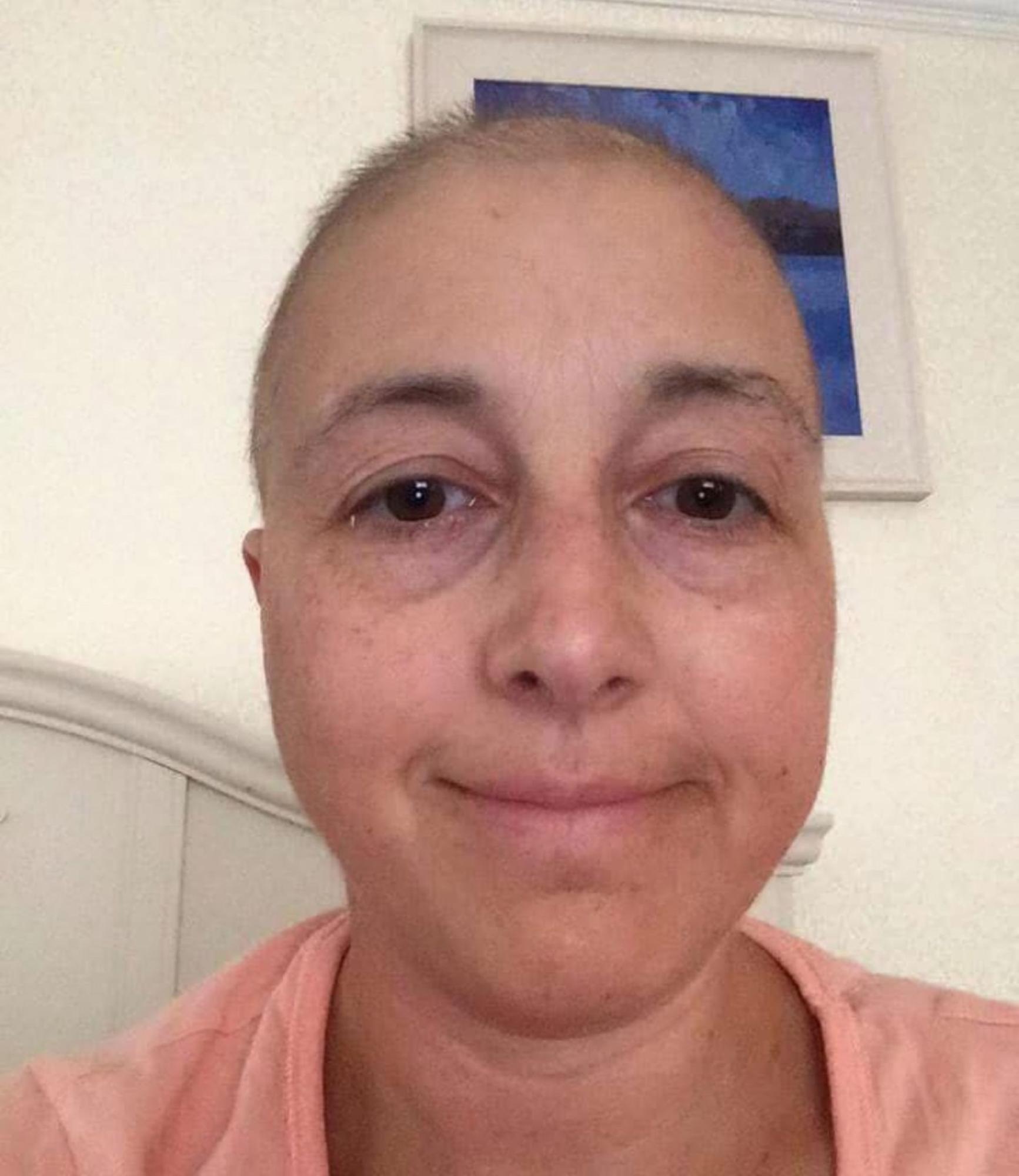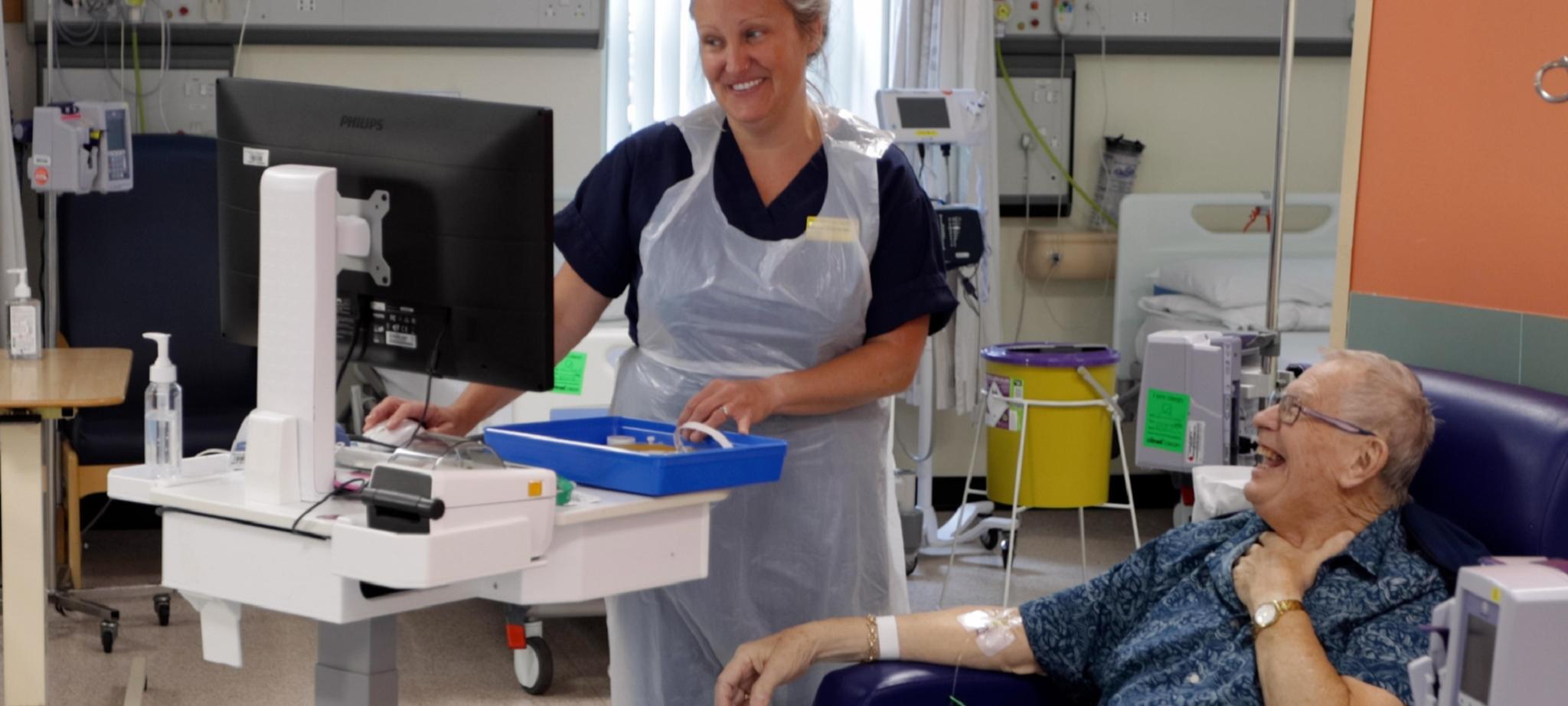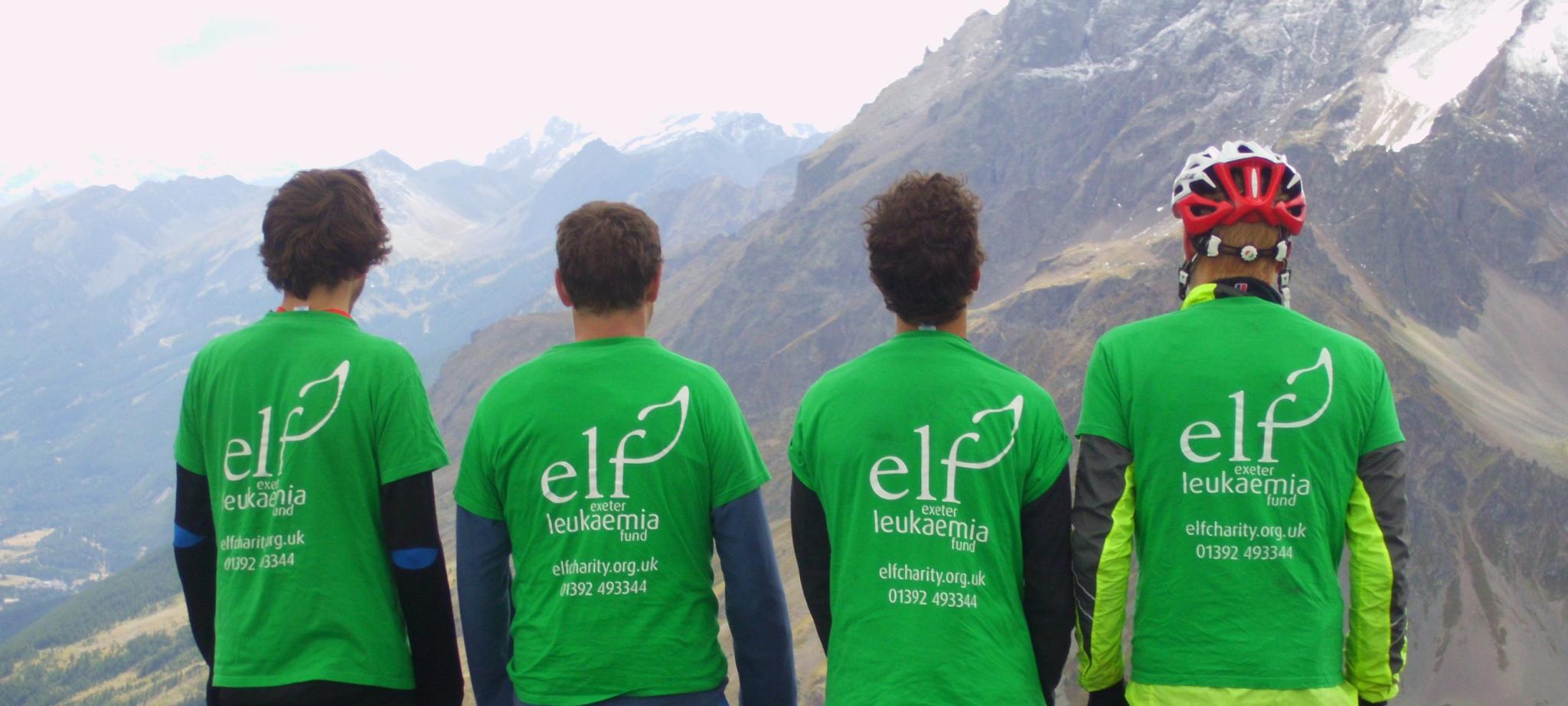
Following her diagnosis, Lynne decided to start her treatment immediately.
Having been and had her diagnosis confirmed on the Monday, she was at the Royal Devon and Exeter Hospital Haematology Centre on the Tuesday for bloods, pic line fitting and to complete the treatment paperwork. She also chose to take part in a trial, with her results being used to help future patients with the same unusual kind of Leukaemia. On Wednesday, treatment began as an inpatient on Yarty Ward.
During this time Lynne recalls
“There was a lady in the bed opposite and she looked so ill. She was hardly moving, and I thought oh gosh, is this what I have got to deal with.”
Over the next five months, Lynne would undergo four rounds of chemotherapy. During this time, Lynne was determined to stay as active as possible - running her business administration from her isolation room kept her busy. She would also walk around the hospital late at night and first thing in the morning. During these walks Lynne remembers seeing the ‘hawkman’ whose job was to scare seagulls / pigeons away from the hospital grounds, and away from the air ambulance landing pad.
Her husband and daughters visited every day and, despite the unusualness of the situation, the girls found comfort in small moments of joy; ELF’s Filling Time Café and being fussed over by nurses.
During her stay, Lynne connected with other patients. Together, they supported each other through the emotional and physical toll of their treatments.
Remarkably, Lynne didn’t feel sick during the chemotherapy sessions. And she chose to block out any negativity wherever she could, focusing on the positives and staying strong. She didn’t even mind when she started to lose her hair as it “showed that the chemotherapy was working.”
Between her treatment rounds, Lynne was allowed home for short breaks and whenever possible, family and friends visited too. Keeping things as normal as possible for the girls was key, and when Lynne was unable to go on the planned family holiday, she insisted that her husband and girls went without her.
“How my husband managed to catch a plane with two young children on his own I will never know! But I was so happy to get daily Facetime of them having fun in the pool and with family friends”
After finishing treatment in October, Lynne tried to return to normal life as quickly as possible. She went back to work and physically felt well. But she found herself counting down the days between her three-month check-ups. Eventually these increased to six months, then a year, until they stopped altogether. But when they did stop, Lynne was left with a strange void. There was no more monitoring, but also no NHS support. A feeling of being lost, and anxious that any stomach pain could mean her slipping out of remission and back to treatment.
It wasn’t until later that Lynne truly understood how lucky she was.
Reflecting on her experience, Lynne shares this piece of advice to anyone going through a similar experience.
“The doctors and nurses have to give you all the information, some pretty grim. Try to block out all the negatives and focus on the positives. Being stubborn in this instance is a good thing!”
Today, Lynne is thriving. She teaches dance again, cherishes time with her family and friends, and holds onto the philosophy that helped her through.
“Cancer hasn’t got you until you give in, so you have to meet it head on and fight it.”

